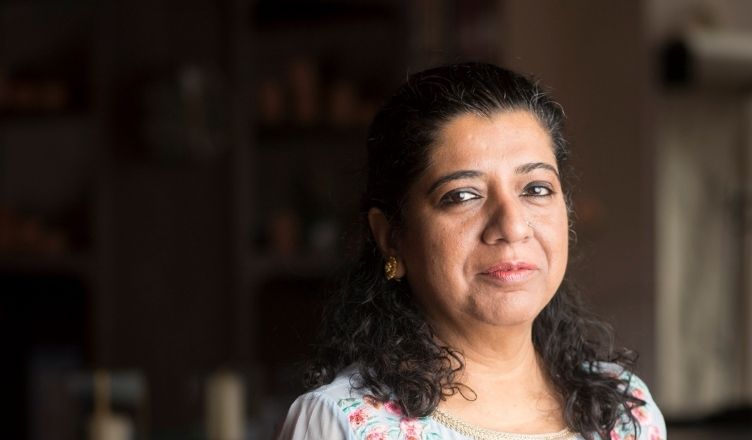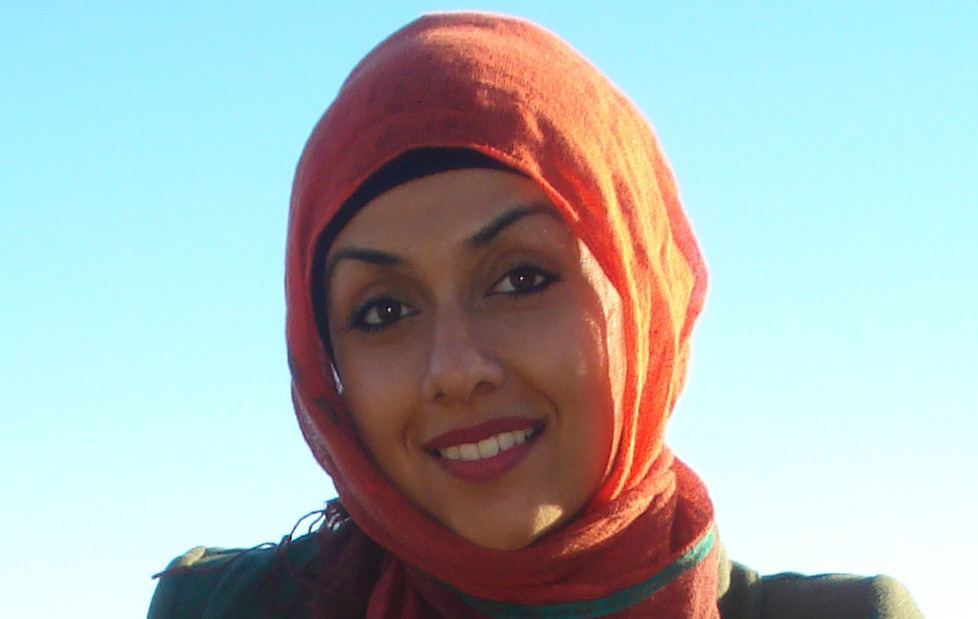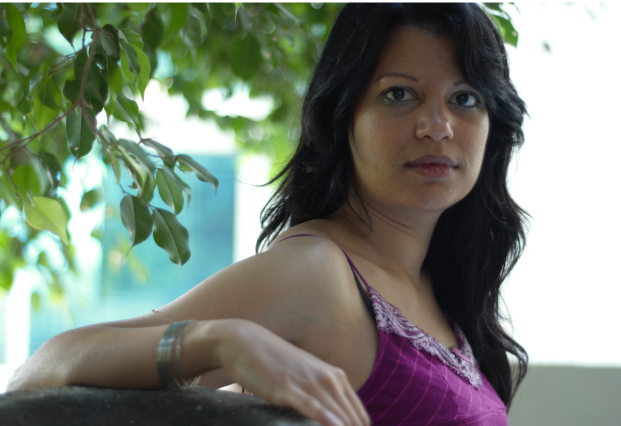Q. What inspired your latest novel, The Good Children?
Three separate things happened that started the novel for me. I was working on a quite different story, about an isolated community, and began studying the 1960s US experiments on obedience (including the Milgram experiment) as research. Then I came across a copy of Beowulf, and became fascinated by the idea of the monstrous mother. And then my seven year old told me, “You’re a monster, mummy!” when I asked him to spend ten minutes on his homework.
I found myself dwelling on the relationships between obedience, rebellion and parenting. I put aside the story I was writing, and wrote OBEDIENCE on a clean sheet. And underneath it, I wrote, “Do Good Children do what they’re told?”
Q. It’s an epic novel, covering the lives of four characters across the East and West, and spanning seventy plus years. Is it what you had in mind when you first sat down to write?
I had a clear idea of the arc of the novel, that is, the beginning, the middle and the end, but as a story it really began to spin away and have a life of its own in the writing. I remember, foolishly, thinking that I could write a short, sharp novel, but instead it just became longer and longer, as I dipped deeper into each characters’ story. It ended up at 170,000 words, almost twice as long as I usually write! But it felt right to write at this length – I think every moment matters.
Q. It was Larkin who wrote ‘They fuck you up, your mum and dad. / They may not mean to, but they do. / They fill you with faults they had / And add some extra, just for you.’ Your characters are never truly free of the burden of their childhood, the wrangling of their mother. As a mother, was it a difficult story to write?
That’s a great quote; I like it so much, I used it in the opening chapter of my third novel, The Way Things Look To Me. I think it was especially hard to write, as a mother and a daughter, as I had to make some tough decisions and be quite uncompromising, especially in the depiction of the mother. I had to force myself not to make excuses for her, or for the children, as they alienated themselves from her. I dedicated the novel to my mother and children, as they were my greatest influences in the writing.
Q. You’ve used both the first person and third person to tell the story. Was it a challenge to switch between narrators and remain convincing? We never see either of the girls, Mae or Lana in first person. Why not?
It was a deliberate decision to switch to third person for the chapters relating to Mae and Lana; they are deeply aware of how others perceive them, and in some ways dismiss them, of the disparity between their surfaces and their complex interior lives. It’s a strongly made point about how women who grew up in Pakistan in the forties were treated, and how they managed to take control of their own stories. To communicate this, I had to use a (close) third person, remaining completely within their perspective, as this allowed me to reflect on how they are seen, to observe and inhabit the characters at the same time.
Q. This is your sixth published novel – only seven years after debut. Tell us how you fit writing into your busy schedule and keep yourself motivated?
I don’t really need to keep myself motivated to write – it’s as natural to me as sleeping and eating, and in fact I’ve been known to prioritise writing over both! It’s not simply that I love writing (and how I do!), I write because I must. I’ve got four kids (aged eight and under) and I teach part-time, so I do what I guess most writing-working parents must do, and write first thing in the morning, and last thing at night. I write new material every morning from 5-8 am, and edit it in the evening after the kids are in bed. I’m happy with 250 to 500 words a day. I don’t mind if it’s not great at first draft; the worst thing I write is still better than the best thing I never bothered to write at all.
Q. You’ve made a subtle but clear transition over the years from writing commercial/lit fiction (enjoyable holiday reads) to lit fiction with a commercial edge (that challenge readers all the more). Are you becoming more ambitious as a writer or are you wanting to be taken more seriously?
I think it’s natural to evolve as a writer, and to want to try something different each time. It’s not really been a conscious decision, but I think each book has cost me a little bit more, as I’ve been forced to dig deeper into myself to find a new story to tell. I hope that each book I write is entertaining, and that it also offers something more to the reader – that it touches them in some way, that it tells them something about themselves or the people around them.
As to ambition, and being taken seriously, I think I’ve been lucky, as I feel I always have been. My first book, Bitter Sweets, is probably still my most commercial novel in terms of sales, published in the US and in twelve countries, but it was also shortlisted for the Orange New Writers Prize and got great reviews from the broadsheets here and abroad.
Q. Tell us about the editing process. How do you tackle revisions? How do you know when to stop?
Since I had my twin girls, I haven’t been able write in six hour stretches, and so the new material I write feels very rough in first draft. So the editing process is almost as important as the writing process – it definitely takes as long. With The Good Children, it was such a huge beast of a book, it felt that the editing never ended. I brutally cut a hundred pages, and re-wrote them altogether. At the final stage, I re-structured and re-wrote the two penultimate chapters. Even at proofs, I was still hacking away at the book, to the stage where I was stressing about a comma I removed in the last chapter. The truth is, I don’t know when to stop. But I know that there’s a point where only I would see the difference, and I have to let it go.
Q. What have you learnt about your own writing since you started? What do you wish you knew sooner?
I think I’ve become more humble, and have grown up a bit. I’ve learned to take criticism, and accept that people don’t offer suggestions to harm, but to help.
I’ve learned to think about my reader too – being read is something of an honour. An extraordinary honour, really. People keep your words in their handbags, on their commute, on their bedside tables – in their most intimate spaces, and they let you whisper in their ear. They step into a world you’ve woven with words, and spend hour after hour there.
The least I can do, in return for that confidence and commitment, is write the best story I can with whatever talent that I have, so they feel the time they’ve spent in my company has been worth it.
Q. Is teaching a distraction or a blessing for your own writing? And do you think good writing can be taught?
It’s both – sometimes I resent the time it takes away, but every new experience adds to the richness of your own writing. Teaching forces me to analyse my own words as a reader, rather than as a writer, and it makes me come out blinking into the daylight, instead of staying hidden in my room. As to whether good writing can be taught – you can’t teach someone to love writing, but if they do, you can certainly teach them to write better. The more you read, the more you write, the better your writing will get. But you need to have the heart for it – I spend 3 to 6 hours everyday, without fail, on my craft. None of my students put in that kind of time.
Q. What’s next for you as a writer? Are you working on another book? Can you tell us more?
I’m always working on another book! I’ve just finished a trilogy for children, with Arts Council support, featuring ethnically diverse inner-city kids as heroes, which I’m very excited about. It weighs in at 300,000 words, and has just gone to my agent. And I’m working on my next literary novel too, which is set in contemporary London – at the moment it feels more like a mosaic, I’m still pulling the threads together, so I’ll tell you more about it when it’s done.
Roopa Farooki was born in Lahore in Pakistan and brought up in London. She graduated from New College, Oxford and worked in advertising before turning to write fiction. Roopa now lives in south-east England and south-west France with her husband, twin girls and two sons. Bitter Sweets, her first novel, was nominated for the Orange Award for New Writers 2007. Roopa`s novels have been published internationally and translated into a dozen languages.


